This article was co-authored by Rebecca Ward, LMFT, SEP, PCC, MA. Rebecca A. Ward, LMFT, SEP, PCC is the Founder of the Iris Institute, a San Francisco, California-based business focusing on using somatic expertise to teach individuals and groups the skills to deal with dilemmas using interventions, including her own Original Blueprint® method. Ms. Ward specializes in treating stress, anxiety, depression, and trauma. She is a Licensed Marriage and Family Therapist (LMFT), a Somatic Experiencing® Practitioner (SEP), and a Professional Certified Coach (PCC) accredited by the International Coach Federation (ICF). Rebecca holds an MA in Clinical Mental Health Counseling from Marymount University and an MA in Organizational Leadership from The George Washington University.
There are 11 references cited in this article, which can be found at the bottom of the page.
This article has been viewed 52,194 times.
Interviews are nerve-wracking for everyone. When you're done with one, you need to figure out what to do with all those nerves. You'll want to immediately de-stress, of course, but you can also take steps to help you in the long-term.
Steps
De-stressing Immediately After the Interview
-
1Stay out of your head. If you spend too much time thinking about what just happened, you're going to make yourself crazy. Take a moment to say hello or goodbye to people as you leave the building, for instance. Try to engage people in conversation in the elevator on your way out. These little steps will stop you from thinking so much about what you just did.[1]
-
2Take a moment to breathe. Once you get to the car or home, take a little bit to calm yourself down. A breathing exercise can help take away some of your anxiety.[2]
- It may not seem like it, but steps one and two actually work to the same end. They both make you stop overthinking your interview.
Advertisement -
3Bend a friend's ear. One way to help you de-stress is to tell a friend about it. Make it someone who can help you break apart the interview to see what you did well and what you didn't do as well. Talking about the interview can help calm your anxiety. Plus, no matter whether you did badly or well, knowing how you did can help you have some closure and move on with life.[3]
- Once you've figured out what you can do better, it's time to stop thinking about the interview. You've thought about it enough to learn from your mistakes, and that's all that matters.
-
4Try a self-soothing activity. A self-soothing activity is basically anything you do that makes you happy or calms you down. It can be anything from sipping tea to having a nice dinner to going to see a movie. Treat yourself to an ice cream if that's your thing.[4]
-
5Spend some time laughing. Laughing is one of the best ways to de-stress and help yourself move on. Go out with a couple of friends who always make you laugh. Listen to a hilarious audiobook. Go to a funny movie. Anything that will get you guffawing will help you feel better.[5]
-
6Have a dance party. That is, turn up some loud music you love that has an awesome beat. Dance around your house to it until you start feeling better. It can also help to sing along to your favorite songs.
- Dancing can actually help shake some of the stress out of your body. If you don't feel like dancing, try bending at the waist as you relax your torso, head, and arms, similar to a ragdoll. Then, shake your shoulders and arms to help get rid of any stress you're holding on to, going down and then back up again.[6]
-
7Exercise. Sometimes, you may find you have so much nervous energy after an interview that the best cure is to use exercise to your advantage. For instance, maybe you could play a pickup game of basketball with some friends, playing hard until you've let go of some of your anxiety.[7]
Writing a Thank You Letter
-
1Send it soon. Make sure to send a thank you within the first couple of days after an interview. That way, the interview is still fresh in the interviewer's mind.[8]
- Sending a thank you is a good way to channel your anxiety because it gives you something physical to do to help you get the job.
-
2Choose a format. Today, companies are often fine with an email thank you letter. You can use email unless you know the company to be very formal, such as they requested you send in your resume rather than submit it by email. Nonetheless, a mailed letter can show that you are committed to the position.[9]
- It can be nice to write a short handwritten note, even. Just make sure your handwriting is neat, and write it out first somewhere else so you don't have typos.[10] Mostly, though, you should only use handwritten notes with somewhat informal companies.
-
3Stay formal. Start with "Dear Mr./Ms." with the person's last name and a semi-colon. If you're sending a typed letter, include the formal heading, with your name and contact information, the date, and the employer's name and contact information above that.[11] In an email, it's not as necessary, but you can still include it.[12]
-
4Get to the point. Start out with thanking the person for the time it took to interview you. In the middle, talk about a connection you made with the interviewer or reiterate what makes you valuable. End the letter with another thank you and convey how much you would like to join the company.[13]
- For instance, to note the connection, you could say, "Thank you for the time you took to interview me the other day. I was pleasantly surprised to find another OU grad. Go Sooners!"
- As for what makes you valuable, you could write, "As we discussed, this job requires sharp attention to detail. With my work experience as an editor, I have the keen eye you need."
-
5Keep it short. You shouldn't be writing a dissertation. This note is just a short, simple way to remind the interviewer of your presence and to show that you really are interested in the job.
- Definitely keep it under a page. You don't want to overwhelm the interviewer. Five paragraphs is also a good maximum, if you're writing an email, but shorter is probably better.
Keeping Yourself Distracted and Moving On
-
1Continue with your job search. While you may get the job you interviewed for, you never know until you get the call. Plus, it may take the company a little while to get back to you. Meanwhile, you shouldn't be wasting time sitting around. Keep applying for jobs and making contacts.[14]
- It may take a while to hear back, depending on the job. For instance, some companies may take up to a month to get back to candidates. It's fine to ask at the interview how long you can expect to wait to hear back, so you have a good idea.
-
2Sleep well. Try to get the recommended 8 hours of sleep. When you're not getting enough sleep, it makes you more stressed.
- Stick to a sleep schedule, even on the weekends. If you can't remember to go to bed on time, try setting an alarm on your phone an hour before you want to go to sleep. At the point, shut down all electronics and get ready to head for bed.
-
3Focus on what went well. Once you've figured out if anything went wrong and how you can correct it, spend your time thinking about what went well, if you must think about the interview. Think about how well you did answering a particular question, and remind yourself that you remembered to ask a couple of questions. Staying focused on the positive will help keep you upbeat.[15]
-
4Spend time doing a hobby. Hobbies are a great way to de-stress because you can lose yourself in what you're doing, much like meditation. Pick a hobby you love to do, and spend a couple of hours doing it the week after the interview.[16]
- Even better, visit a local group that was created around the same hobby. That way, you engage with others and enjoy your hobby.
-
5Volunteer your time. Volunteering is a way to help others, but it also builds up your skill set at the same time. Plus, it makes you feel better about yourself and gives you a chance to meet new people and network.[17]
- Try volunteering at a local library or school. Visit hospitals, soup kitchens, homeless shelters, and other similar organizations to see if you can help. Spearhead a community garden. Try to pick something that partially uses the skills you have.
Say Goodbye to Anxiety with this Expert Series
Expert Q&A
-
QuestionHow do you feel better after an interview?
 Rebecca Ward, LMFT, SEP, PCC, MARebecca A. Ward, LMFT, SEP, PCC is the Founder of the Iris Institute, a San Francisco, California-based business focusing on using somatic expertise to teach individuals and groups the skills to deal with dilemmas using interventions, including her own Original Blueprint® method. Ms. Ward specializes in treating stress, anxiety, depression, and trauma. She is a Licensed Marriage and Family Therapist (LMFT), a Somatic Experiencing® Practitioner (SEP), and a Professional Certified Coach (PCC) accredited by the International Coach Federation (ICF). Rebecca holds an MA in Clinical Mental Health Counseling from Marymount University and an MA in Organizational Leadership from The George Washington University.
Rebecca Ward, LMFT, SEP, PCC, MARebecca A. Ward, LMFT, SEP, PCC is the Founder of the Iris Institute, a San Francisco, California-based business focusing on using somatic expertise to teach individuals and groups the skills to deal with dilemmas using interventions, including her own Original Blueprint® method. Ms. Ward specializes in treating stress, anxiety, depression, and trauma. She is a Licensed Marriage and Family Therapist (LMFT), a Somatic Experiencing® Practitioner (SEP), and a Professional Certified Coach (PCC) accredited by the International Coach Federation (ICF). Rebecca holds an MA in Clinical Mental Health Counseling from Marymount University and an MA in Organizational Leadership from The George Washington University.
Licensed Therapist Try putting one hand on your chest and the other on your belly. Breathe in deeply through your nose, and notice the way the air feels as it fills up your chest and belly. Then, exhale through your mouth with easy long out-breaths. Repeat this several times, until you start to notice the calming effect. In addition to deep breathing, you can also try mindfulness exercises. To do that, pay attention to the physical sensations in your body, including the things you can see, feel, hear, taste, and smell. This can help ground you in the present moment, reducing your anxiety.
Try putting one hand on your chest and the other on your belly. Breathe in deeply through your nose, and notice the way the air feels as it fills up your chest and belly. Then, exhale through your mouth with easy long out-breaths. Repeat this several times, until you start to notice the calming effect. In addition to deep breathing, you can also try mindfulness exercises. To do that, pay attention to the physical sensations in your body, including the things you can see, feel, hear, taste, and smell. This can help ground you in the present moment, reducing your anxiety. -
QuestionHow can you deal with anxiety after a job interview?
 Rebecca Ward, LMFT, SEP, PCC, MARebecca A. Ward, LMFT, SEP, PCC is the Founder of the Iris Institute, a San Francisco, California-based business focusing on using somatic expertise to teach individuals and groups the skills to deal with dilemmas using interventions, including her own Original Blueprint® method. Ms. Ward specializes in treating stress, anxiety, depression, and trauma. She is a Licensed Marriage and Family Therapist (LMFT), a Somatic Experiencing® Practitioner (SEP), and a Professional Certified Coach (PCC) accredited by the International Coach Federation (ICF). Rebecca holds an MA in Clinical Mental Health Counseling from Marymount University and an MA in Organizational Leadership from The George Washington University.
Rebecca Ward, LMFT, SEP, PCC, MARebecca A. Ward, LMFT, SEP, PCC is the Founder of the Iris Institute, a San Francisco, California-based business focusing on using somatic expertise to teach individuals and groups the skills to deal with dilemmas using interventions, including her own Original Blueprint® method. Ms. Ward specializes in treating stress, anxiety, depression, and trauma. She is a Licensed Marriage and Family Therapist (LMFT), a Somatic Experiencing® Practitioner (SEP), and a Professional Certified Coach (PCC) accredited by the International Coach Federation (ICF). Rebecca holds an MA in Clinical Mental Health Counseling from Marymount University and an MA in Organizational Leadership from The George Washington University.
Licensed Therapist When you come out of a stressful situation, you need to shake off that activation in your nervous system. One way to do that is to drop your torso and head down, like a rag doll, then just shake the stress out of your body, going down and then back up again.
When you come out of a stressful situation, you need to shake off that activation in your nervous system. One way to do that is to drop your torso and head down, like a rag doll, then just shake the stress out of your body, going down and then back up again.
References
- ↑ https://www.psychologytoday.com/us/blog/get-out-your-mind/201911/how-get-out-your-head
- ↑ http://psychcentral.com/lib/9-ways-to-reduce-anxiety-right-here-right-now/
- ↑ https://www.nhs.uk/mental-health/self-help/guides-tools-and-activities/tips-to-reduce-stress/
- ↑ http://blogs.psychcentral.com/emotionally-sensitive/2012/04/self-soothing-calming-the-amgydala/
- ↑ http://www.health.harvard.edu/mind-and-mood/5-ways-to-de-stress-and-help-your-heart
- ↑ Rebecca Ward, LMFT, SEP, PCC, MA. Licensed Therapist. Expert Interview. 29 May 2020.
- ↑ https://my.clevelandclinic.org/health/articles/8133-stress-10-ways-to-ease-stress
- ↑ http://www.forbes.com/sites/lizryan/2015/06/08/how-to-write-a-thank-you-note-after-a-job-interview/#711959891ed6
- ↑ http://www.job-hunt.org/job_interviews/sample-interview-thank-you-email.shtml
- ↑ http://www.forbes.com/sites/lizryan/2015/06/08/how-to-write-a-thank-you-note-after-a-job-interview/#711959891ed6
- ↑ http://career-advice.monster.com/job-interview/following-up/sample-interview-thank-you-letter/article.aspx
- ↑ http://www.job-hunt.org/job_interviews/sample-interview-thank-you-email.shtml
- ↑ http://www.job-hunt.org/job_interviews/sample-interview-thank-you-email.shtml
- ↑ http://www.workcoachcafe.com/2009/04/14/12-ways-to-stay-sane-after-a-job-interview/
- ↑ http://www.health.harvard.edu/mind-and-mood/5-ways-to-de-stress-and-help-your-heart
- ↑ http://www.health.harvard.edu/mind-and-mood/5-ways-to-de-stress-and-help-your-heart
- ↑ http://www.workcoachcafe.com/2009/04/14/12-ways-to-stay-sane-after-a-job-interview/

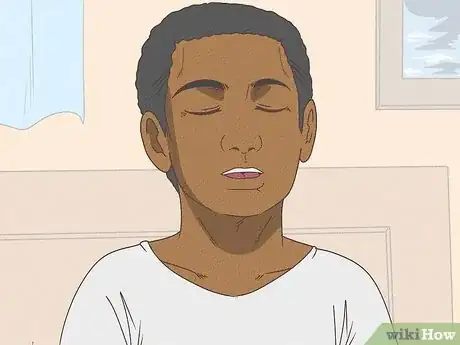


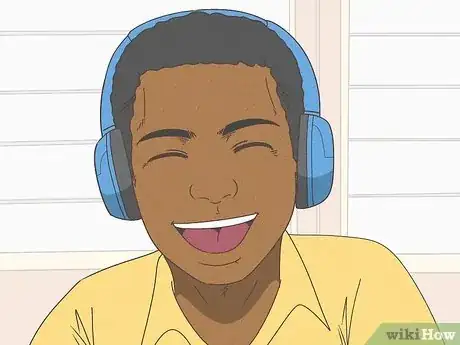
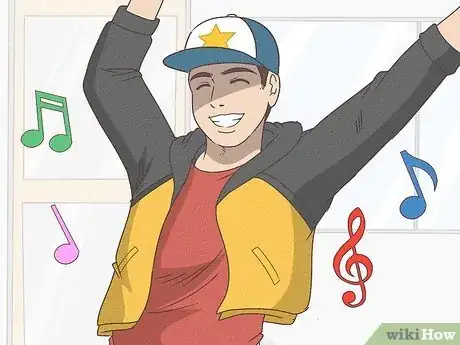

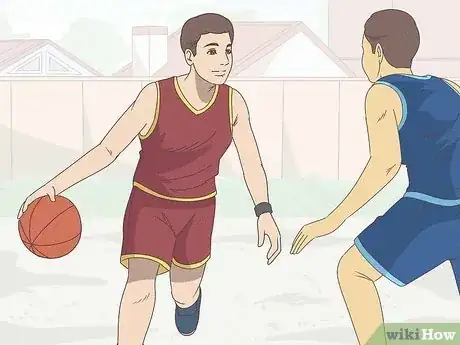
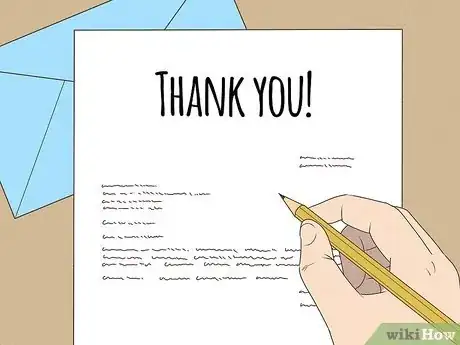
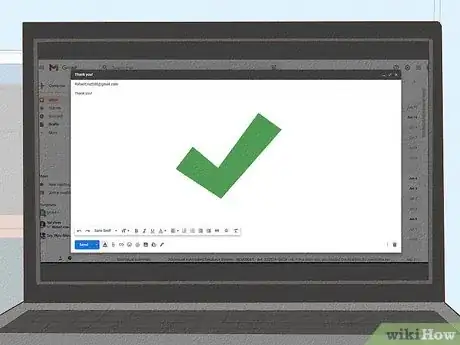
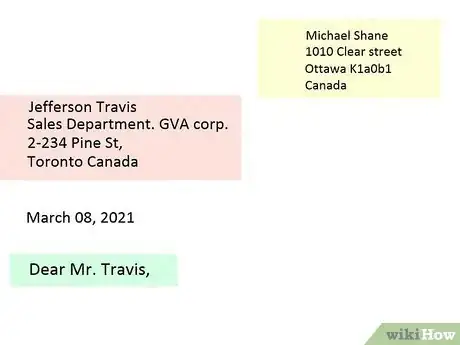
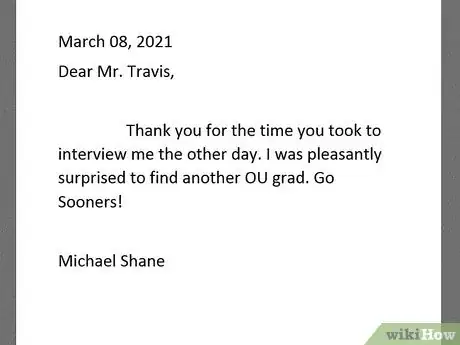
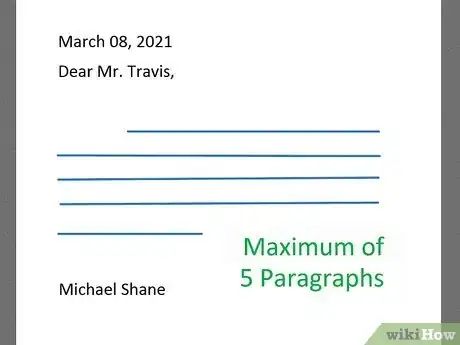
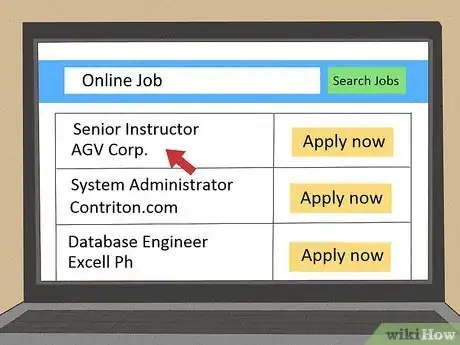
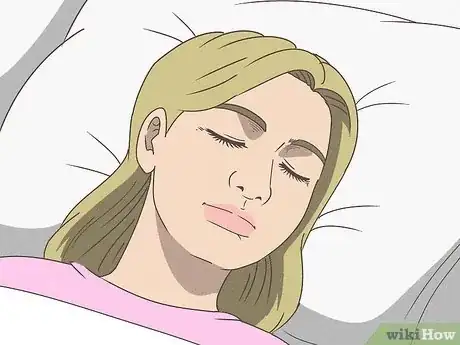





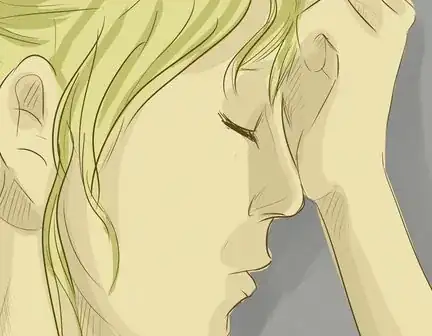
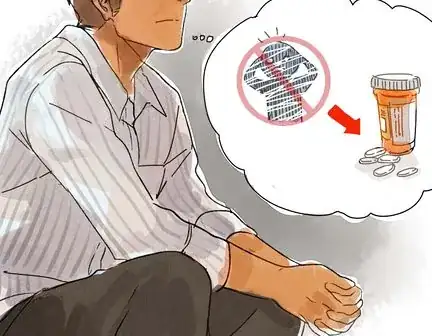
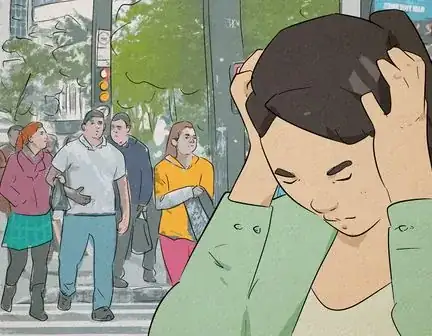
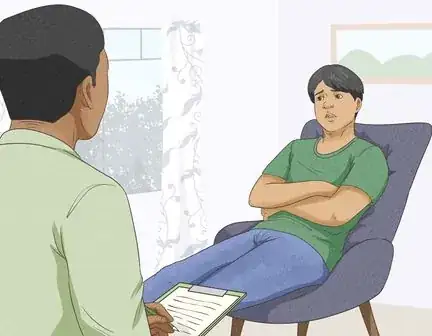


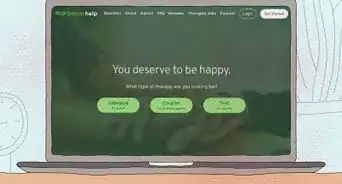

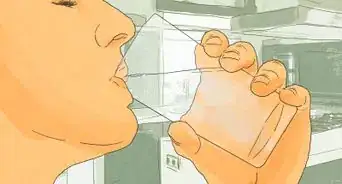

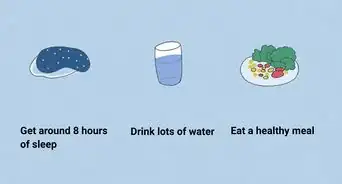
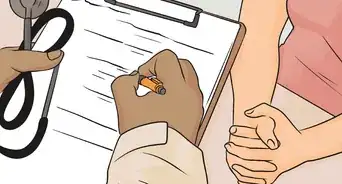




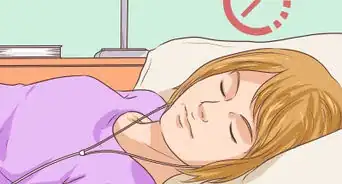















































Medical Disclaimer
The content of this article is not intended to be a substitute for professional medical advice, examination, diagnosis, or treatment. You should always contact your doctor or other qualified healthcare professional before starting, changing, or stopping any kind of health treatment.
Read More...